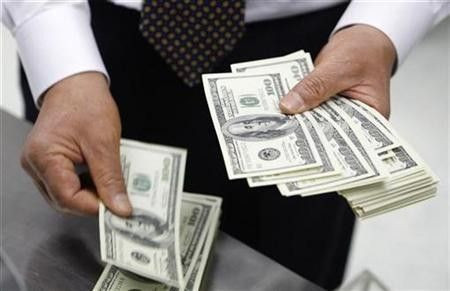China ex-minister warns of U.S. monetary narcotic

The loose monetary policy in the United States is little better than a narcotic and will harm the rest of the world more than it helps Americans, a former Chinese vice commerce minister told Reuters.
Wei Jianguo, now head of a top think tank, joined the ranks of Chinese officials blaming the Federal Reserve's quantitative easing for flooding the developing world with easy money and fuelling inflation.
It's hurting others and not even benefiting itself, he said. Quantitative easing is a narcotic, an amphetamine, a smoke bomb. The fundamental problems of the economy have just been covered up, Wei, chief of the China Center for International Economic Exchanges (CCIEE), said in an interview.
Despite China's vocal criticism of the Fed's planned $600 billion bond-buying stimulus, it has continued to invest vast amounts of its wealth in dollar assets. China held $1.16 trillion of U.S. government debt at the end of last year, $268.4 billion more than previously thought, the U.S. Treasury Department said on Monday.
China itself has faced plenty of foreign anger over its economic policies, particularly its tightly controlled exchange rate, which many say keeps its exports cheap and fuels its hefty trade surplus.
Wei said China needed to be sensitive to these concerns, but that the best way to cut its trade surplus was to increase imports, not raise the yuan's exchange rate.
How to reduce China's trade surplus and resolve its trade frictions with other countries? We must boost imports, Wei said.
Beijing must make a fundamental overhaul of trade policy to spur imports and buy not just raw materials but everything from Swiss watches and French cosmetics to meet growing domestic demand for luxury goods, he said.
LOSING FRIENDS
China was under pressure not just from rich countries, but also developing countries to cut its trade surplus, he added.
We have been running trade surpluses with some developing countries for a long time and they are complaining. If the trend persists, we will lose our friends, he said.
That change is coming, he said, predicting that China's trade surplus would narrow to about $100 billion this year from $183 billion in 2010.
Chinese exports increased 31.3 percent in 2010 as global demand recovered, but its imports rose even quicker, up 38.7 percent on the back of its voracious appetite for oil, iron ore and other commodities.
But China should not let its currency rise sharply as many exporting companies were already struggling to cope with rising labor and raw materials costs, he said.
The yuan will continue to appreciate. Based on my discussions with exporters, the upper limit for yuan appreciation that they can cope with is 3-5 percent a year, Wei said.
China has let the yuan gain about 3.9 percent against the dollar since it was depegged in June 2010. Economists polled by Reuters think China will let the yuan rise 5.4 percent this year.
World leaders have been trying to tackle the global economic imbalances that exacerbated and, some say, helped trigger the financial crisis in 2008, with China's yawning trade surplus seen as one of the chief problems.
China would cut import tariffs and red tape to boost imports this year and maintain balanced trade, China's vice minister of commerce Zhong Shan said in comments published on Thursday.
© Copyright Thomson Reuters 2024. All rights reserved.





















